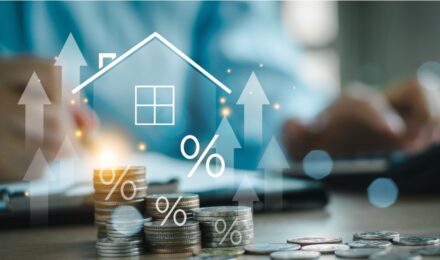When it comes to consolidating credit card debt, there are many options to consider. Personal loans are a top choice due to how easy they are to apply for.
In a perfect world, people would not need to borrow money to pay off their debts. However, in reality, borrowing money is often the only option when trying to get out of debt. Due to the high-interest rates that people are paying on credit cards, it is often difficult for people to get out of debt. Even though they have the minimum payment, they are still stuck with paying a huge amount of money in interest. With a lower interest rate, they can get out of debt faster.
When Personal Loans Make Sense for Consolidating Debts
A personal loan may be the best option for people who are trying to consolidate their debts. Although it may seem like a risky strategy, consolidating debt with a personal loan can be beneficial for people who are looking to get out of debt faster. With a low-interest rate and fair terms, this type of loan can be a suitable option.
Benefits of Personal Loans
- Qualify for Lower Interest Rates
As of May 2023, the APR for a personal loan is around 10.95%. That’s lower than the average credit card APR, which is 19.91%. With a lower rate, it can provide substantial interest savings. According to myFICO.com, a person who is looking to get a personal loan should have a score of 670 or higher to qualify for the best interest rates and terms. However, this is the minimum score that people should have to be considered for a loan. The higher your credit score is, the better rates you will be offered when applying for a personal loan.
- Consolidate All Debt Payments Into One
It can be hard to establish a debt repayment plan if you have multiple credit cards and high-interest rates. Having a manageable monthly payment is important to ensure that you stay on track to getting debt free. Getting a personal loan can help consolidate all of your debts into one payment and lower your interest rate.
A debt repayment calculator can help you estimate how much you can reduce your interest rate and pay off your debts at a faster pace. For example, let’s assume that you have $5,000 in debt with a 17% interest rate and $7,000 in debt with a 21% interest rate. You can only make a total of $200 payments each month on the two credit cards. If you have a high-interest rate and are not making the necessary payments on your credit cards, then you will not be able to pay off the debts. If you have a personal loan with a 10% interest rate, you can easily contribute $200 a month and start reducing your debts quickly.
- Obtain a Lower Monthly Payment
If you are struggling with high credit card debt and are not able to make the necessary payments, a personal loan may be the ideal solution. Having a lower interest rate and a repayment schedule can help you pay off the debts faster. You may be able to consolidate all of your debts into one payment and lower your payments. With a lower monthly payment and a long repayment period, you can achieve a lower APR and lower payments.
- Obtain a Time-Frame to Be Debt Free
One of the biggest issues with credit cards is that if you use them for purchases, you might never be able to pay off the debt. On the other hand, with a personal loan, you have a fixed interest rate, a monthly payment, and a repayment schedule that can be adjusted to meet the specific date that you’ll be able to eliminate your debts.
If you are not making enough progress on your credit card bills, then you might want to consider getting a personal loan instead. This type of loan can consolidate all your debts into one monthly payment and reduce your interest rate.
When Personal Loans Aren’t The Best Choice
Although a personal loan can be beneficial when it comes to paying off credit cards, it’s not always the best idea to take out a loan to consolidate all of your debts. There are a few instances where you might want to try a different method.
- You Don’t Have a Large Amount of Debt
If you have a manageable amount of debt, then you might be able to consolidate it into one payment and reduce the interest rate with a balance transfer credit card. With a zero-percent APR card, you can easily pay off your debts in less than two years. Although there may be a fee associated with transferring your balances, you could potentially save hundreds of dollars in interest by paying off your debts early. Some credit cards even have consumer benefits and rewards programs, so make sure to check them out before signing up.
- You Won’t Be Changing Your Spending Habits
If you have a large credit card balance, you might end up spending more than you can afford to. Paying off your debts early can help you avoid getting into more financial trouble if you continue to spend the same way. Before you start applying for a debt consolidation loan, you must have a comprehensive financial strategy. This can include consulting a financial coach or learning about budgeting methods. After you have a good idea of what works for you, then you can start making the necessary changes to improve your financial situation.
- You Need Help With Your Financial Situation
Sometimes, people who have a large amount of debt can feel overwhelmed and unable to make their payments on their own. If this is the case, you may be able to benefit from a debt relief program or a non-profit organization. Although the FTC has issued a warning about certain third-party debt settlement companies, it’s still important to check out their legitimacy.
If you have a large amount of debt that will be hard to pay off in the foreseeable future, then you might be considered a candidate for bankruptcy. Before you decide to file for bankruptcy, you should talk to a certified consumer counseling service (CCCS) counselor. The Federal Trade Commission (FTC) also suggests that consumers check out any agency that they’re considering working with.
When it comes to consolidating credit card debt, there are many options to consider. Personal loans are a top choice due to how easy they are to apply for.
In a perfect world, people would not need to borrow money to pay off their debts. However, in reality, borrowing money is often the only option when trying to get out of debt. Due to the high-interest rates that people are paying on credit cards, it is often difficult for people to get out of debt. Even though they have the minimum payment, they are still stuck with paying a huge amount of money in interest. With a lower interest rate, they can get out of debt faster.
When Personal Loans Make Sense for Consolidating Debts
A personal loan may be the best option for people who are trying to consolidate their debts. Although it may seem like a risky strategy, consolidating debt with a personal loan can be beneficial for people who are looking to get out of debt faster. With a low-interest rate and fair terms, this type of loan can be a suitable option.
Benefits of Personal Loans
- Qualify for Lower Interest Rates
As of May 2023, the APR for a personal loan is around 10.95%. That’s lower than the average credit card APR, which is 19.91%. With a lower rate, it can provide substantial interest savings. According to myFICO.com, a person who is looking to get a personal loan should have a score of 670 or higher to qualify for the best interest rates and terms. However, this is the minimum score that people should have to be considered for a loan. The higher your credit score is, the better rates you will be offered when applying for a personal loan.
- Consolidate All Debt Payments Into One
It can be hard to establish a debt repayment plan if you have multiple credit cards and high-interest rates. Having a manageable monthly payment is important to ensure that you stay on track to getting debt free. Getting a personal loan can help consolidate all of your debts into one payment and lower your interest rate.
A debt repayment calculator can help you estimate how much you can reduce your interest rate and pay off your debts at a faster pace. For example, let’s assume that you have $5,000 in debt with a 17% interest rate and $7,000 in debt with a 21% interest rate. You can only make a total of $200 payments each month on the two credit cards. If you have a high-interest rate and are not making the necessary payments on your credit cards, then you will not be able to pay off the debts. If you have a personal loan with a 10% interest rate, you can easily contribute $200 a month and start reducing your debts quickly.
- Obtain a Lower Monthly Payment
If you are struggling with high credit card debt and are not able to make the necessary payments, a personal loan may be the ideal solution. Having a lower interest rate and a repayment schedule can help you pay off the debts faster. You may be able to consolidate all of your debts into one payment and lower your payments. With a lower monthly payment and a long repayment period, you can achieve a lower APR and lower payments.
- Obtain a Time-Frame to Be Debt Free
One of the biggest issues with credit cards is that if you use them for purchases, you might never be able to pay off the debt. On the other hand, with a personal loan, you have a fixed interest rate, a monthly payment, and a repayment schedule that can be adjusted to meet the specific date that you’ll be able to eliminate your debts.
If you are not making enough progress on your credit card bills, then you might want to consider getting a personal loan instead. This type of loan can consolidate all your debts into one monthly payment and reduce your interest rate.
When Personal Loans Aren’t The Best Choice
Although a personal loan can be beneficial when it comes to paying off credit cards, it’s not always the best idea to take out a loan to consolidate all of your debts. There are a few instances where you might want to try a different method.
- You Don’t Have a Large Amount of Debt
If you have a manageable amount of debt, then you might be able to consolidate it into one payment and reduce the interest rate with a balance transfer credit card. With a zero-percent APR card, you can easily pay off your debts in less than two years. Although there may be a fee associated with transferring your balances, you could potentially save hundreds of dollars in interest by paying off your debts early. Some credit cards even have consumer benefits and rewards programs, so make sure to check them out before signing up.
- You Won’t Be Changing Your Spending Habits
If you have a large credit card balance, you might end up spending more than you can afford to. Paying off your debts early can help you avoid getting into more financial trouble if you continue to spend the same way. Before you start applying for a debt consolidation loan, you must have a comprehensive financial strategy. This can include consulting a financial coach or learning about budgeting methods. After you have a good idea of what works for you, then you can start making the necessary changes to improve your financial situation.
- You Need Help With Your Financial Situation
Sometimes, people who have a large amount of debt can feel overwhelmed and unable to make their payments on their own. If this is the case, you may be able to benefit from a debt relief program or a non-profit organization. Although the FTC has issued a warning about certain third-party debt settlement companies, it’s still important to check out their legitimacy.
If you have a large amount of debt that will be hard to pay off in the foreseeable future, then you might be considered a candidate for bankruptcy. Before you decide to file for bankruptcy, you should talk to a certified consumer counseling service (CCCS) counselor. The Federal Trade Commission (FTC) also suggests that consumers check out any agency that they’re considering working with.



